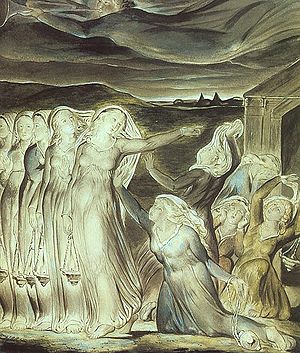Below is a section from my upcoming paper at the Pre-Trib Study Group. My paper analyzes Sam Storms’ book Kingdom Come. In particular, this section talks about 2 Corinthians 4:3-4 and how its interpretation should be integrated with the teaching of Revelation 20 about the binding of Satan. I think this is a difficult passage for amillennialism to address. I know I have my problem passages, but I would prefer my problem passages to their problem passages.
“The case is more problematic for the amillennialist when Pauline teaching on the matter is examined. Paul in 2 Corinthians 4:3-4 states the issue rather clearly: “And even if our gospel is veiled, it is veiled to those who are perishing, in whose case the god of this world has blinded the minds of the unbelieving, that they might not see the light of the gospel of the glory of Christ, who is the image of God.” On the face of things following literal interpretation, this passage seems to suggest that the god of this world (Satan) is currently deceiving individuals within the nations. In fact, the Apostle seems to suggest that all lost individuals among the nations of the world are being blinded by Satan. To diminish the direct import of the passage, Storms makes some assumptions. First, he assumes that good angels may actually aid in hindering Satan: “we may rest assured that in some way they [good angels] are present to strengthen, guard, and encourage those who proclaim the gospel and perhaps even to restrain the adverse influence of the demonic who would seek to undermine the reception of the gospel (2 Cor. 4:4).”[1] This almost sounds as an admission that Satan’s dominion is actually deceiving individuals within the people groups of the world, something he has denied in his discussion in Revelation 20.
Second, Storms relativizes the deceiving ministry of Satan. In another place in the book, he comments: “In other words, it is the influence of the Church, as a result of the universal preaching of the gospel, which inhibits the activity of Satan in this particular regard. Though Satan still blinds the minds of the unbelieving (2 Cor. 4:4), he is providentially restricted from hindering the pervasive expansion of the gospel throughout the world. Satan may win an occasional battle, but the war belongs to Christ!” The premillennialist looks at such a comment and interprets Storms’ words as teaching a partial deceiving of the nations. Blinding means deceiving. Revelation 20:3 teaches that for one thousand years, Satan will do no deceiving of the nations. Storms is attempting to have his cake and eat it too. However, such partial deception by Satan is not consistent with the binding of Satan taught in the Bible for the millennium.
In the end, the premillennialist remains confident that his approach to the structure of the book of Revelation, especially chapters 19-20, is correct. Satan will be bound in a future time that begins at the second coming of Christ. The premillennialist will continue to believe the amillennialists have not made their case.”
[1] Storms, Kingdom Come, 271. Storms is discussing the meaning of “messengers” in Matthew 24:31 when he makes this statement.





